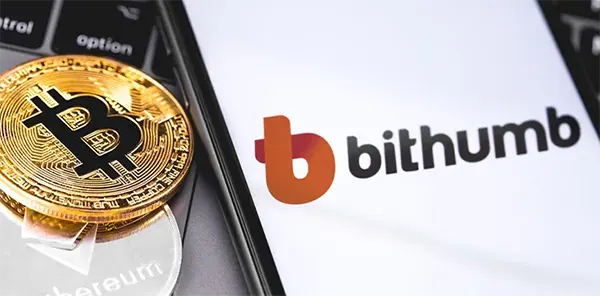
Bithumb Exchange: The Korean Approach to Cryptocurrency Trading
Bithumb is one of the oldest and most well-known cryptocurrency exchanges in South Korea. It has played a crucial role in shaping the Asian digital asset market, offering a unique perspective on cryptocurrency trading with a distinct regulatory and operational framework. This article provides an in-depth look at Bithumb’s history, its regulatory status, available services, and its impact on the Asian crypto economy.
History and Evolution of Bithumb
Founded in 2014, Bithumb quickly became a dominant force in the South Korean cryptocurrency market. The exchange initially gained traction due to the country’s growing interest in digital assets, especially Bitcoin and Ethereum. With South Korea being one of the largest cryptocurrency markets in the world, Bithumb capitalised on this demand by offering seamless trading experiences.
Over the years, Bithumb has expanded its services to include a broad range of cryptocurrencies, margin trading, and staking options. However, the exchange has also faced challenges, including security breaches and regulatory scrutiny, which have shaped its current operational landscape.
In 2017, Bithumb suffered a significant security breach, resulting in the theft of millions of dollars worth of crypto assets. This incident led to increased security measures and reinforced regulatory oversight in South Korea. Despite these setbacks, Bithumb remains a leading player in the industry, continually adapting to evolving regulations and market trends.
Regulatory Framework and Compliance
South Korea has some of the strictest cryptocurrency regulations in the world, and Bithumb operates under stringent compliance measures set by the Financial Services Commission (FSC). The exchange has implemented Know Your Customer (KYC) and Anti-Money Laundering (AML) protocols to ensure transparency and security.
In 2021, the South Korean government introduced new regulations requiring cryptocurrency exchanges to register with the Financial Intelligence Unit (FIU). Bithumb successfully complied with these regulations, allowing it to continue operations legally. Furthermore, the exchange collaborates with banks to provide real-name verification for user accounts, reducing the risk of fraudulent activities.
As the regulatory landscape evolves, Bithumb continues to adjust its operations to meet compliance requirements while maintaining a competitive edge in the crypto trading sector.
Available Services and Features
Bithumb offers a diverse range of services tailored to different types of traders and investors. One of its key features is its user-friendly interface, designed to accommodate both beginners and experienced traders. The platform supports spot trading, futures trading, and margin trading, providing users with various options to engage with digital assets.
Additionally, Bithumb provides staking services, allowing users to earn rewards by holding specific cryptocurrencies. This feature has gained popularity among long-term investors who wish to generate passive income while holding their assets.
The exchange also integrates with mobile applications, enabling traders to manage their portfolios on the go. With advanced security features such as two-factor authentication (2FA) and cold storage for digital assets, Bithumb prioritises user safety and data protection.
Security Measures and User Protection
Given its history of security breaches, Bithumb has significantly enhanced its security measures to protect users from potential threats. The platform employs cold storage solutions to safeguard the majority of its digital assets, minimising exposure to online threats.
Furthermore, Bithumb has implemented multi-signature authentication processes for transactions, adding an extra layer of security. Regular security audits and updates ensure that the platform remains resilient against cyber-attacks.
In addition to technological security measures, Bithumb has established a compensation fund to reimburse users in case of unforeseen security incidents. This proactive approach has helped rebuild trust among traders and investors.

Bithumb’s Role in the Asian Crypto Market
Bithumb plays a pivotal role in the Asian cryptocurrency ecosystem, particularly in South Korea. As one of the largest exchanges in the region, it contributes to the liquidity and price discovery of various digital assets. The exchange’s influence extends beyond South Korea, attracting international traders looking for exposure to the Asian market.
With South Korea being a hub for blockchain innovation, Bithumb actively collaborates with fintech companies and blockchain projects to drive industry advancements. The exchange also supports Initial Exchange Offerings (IEOs), providing startups with a platform to raise funds through token sales.
Despite increasing competition from global exchanges like Binance and Coinbase, Bithumb maintains a strong presence in the Asian market by continuously innovating and adapting to regulatory changes.
Future Prospects and Market Trends
Looking ahead, Bithumb is poised to expand its offerings and solidify its position in the cryptocurrency industry. The exchange is exploring new blockchain applications and decentralised finance (DeFi) solutions to cater to the evolving demands of the market.
As South Korea moves towards more comprehensive crypto regulations, Bithumb’s ability to adapt will determine its long-term success. By maintaining regulatory compliance, enhancing security measures, and introducing new trading features, the exchange aims to remain a key player in the global crypto economy.
With the rise of institutional adoption and mainstream interest in cryptocurrencies, Bithumb’s role in shaping the future of digital asset trading in Asia remains significant.
